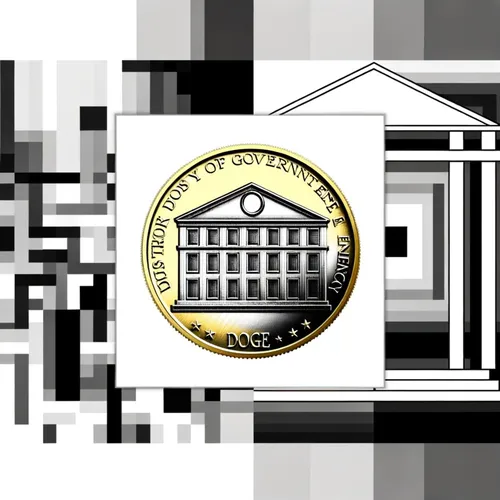DOGE Transforms Government: Blockchain and Crypto Revolutionize Federal Operations in Groundbreaking Efficiency Initiative
- Author
- Quiet. Please
- Published
- Tue 15 Apr 2025
- Episode Link
- https://www.spreaker.com/episode/doge-transforms-government-blockchain-and-crypto-revolutionize-federal-operations-in-groundbreaking-efficiency-initiative--65583950
In a world increasingly shaped by digital transformation, the U.S. government, under the Department of Government Efficiency (DOGE), is aiming to modernize operations with a bold mix of technology, innovation, and cost-cutting measures. Established in early 2025, DOGE’s mission blends blockchain technology, cryptocurrency integration, and streamlined federal processes to redefine public service overhauls. Yet, the initiative is met with both admiration and controversy.
DOGE, often likened to a "bureaucratic cryptocurrency," seeks to disrupt inefficiency much like Dogecoin did with traditional finance humor. Its agenda prioritizes blockchain applications for transparency, including a pilot program to trace federal spending in real-time. For instance, California's DMV tokenization of 42 million vehicle titles demonstrates blockchain’s potential to slash wait times and costs, inspiring similar efforts in land registries and tax systems nationwide. By digitizing public records and enhancing data-sharing across agencies, DOGE envisions a government structure that's secure, interconnected, and future-facing.
Cryptocurrency is another frontier. Colorado now allows residents to pay state taxes in crypto, reflecting wider ambitions to use digital currencies for Social Security payments and unemployment benefits. Such moves promise speed and reduced administrative costs while delivering funds directly to recipients. Moreover, DOGE’s Strategic Bitcoin Reserve consolidates seized digital assets for government funding—a testament to the administration’s embrace of decentralized finance.
But the initiative isn’t without scrutiny. While DOGE claims to have saved $130 billion since its inception, independent analyses question the accuracy of these figures, citing potential misaccounting for tens of billions of dollars. Critics, including analysts and lawmakers, view DOGE as an ideological push to centralize executive control under President Trump, embodying tenets of the unitary executive theory rather than merely chasing fiscal prudence.
Supporters argue that DOGE exemplifies a forward-thinking government. Blockchain-based elections, presented as tamper-proof and cost-effective, could redefine democratic participation, while automation reduces the carbon footprint of paper-heavy bureaucracy. Still, detractors warn of risks tied to over-centralization and data misuse.
DOGE represents a pivotal experiment in aligning technology with governance, pushing boundaries while sparking debate. Whether this initiative becomes a hallmark of efficiency or a cautionary tale of overreach remains to be seen. Only time will reveal if the so-called "DOGE coin of bureaucracy" delivers real dividends for government and citizens alike.
